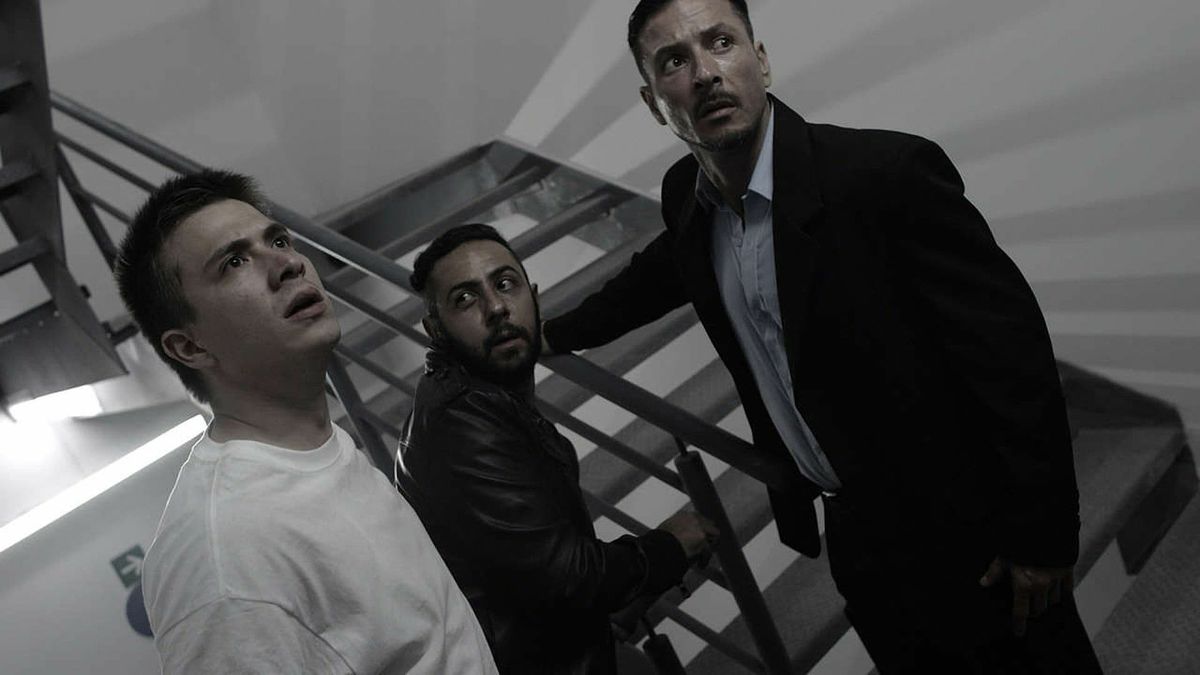The Incident
The Incident (El Incidente) is a 2014 Mexican science fiction thriller written and directed by Isaac Ezban. Known for its high-concept narrative and low-budget ingenuity, the film explores human psychology and the concept of time through two intertwined storylines. It stands out as a haunting and cerebral examination of repetition, trauma, and the prison of fate.
The film opens with two petty criminals, Carlos and his younger brother Oliver, being pursued by a corrupt detective named Marco. As the confrontation escalates, the three find themselves inexplicably trapped in an endless stairwell. No matter how far they go up or down, the stairs loop back in a surreal, never-ending cycle. Time passes strangely, and their physical needs continue to be mysteriously met—food appears, wounds heal, yet they cannot escape. This bizarre purgatory becomes a test of mental endurance and emotional survival as the days turn into years.

Parallel to this storyline, the film follows a family on a road trip: Sandra, her husband Roberto, and her two children, Daniel and Camila. After a tragic accident at a gas station, they also find themselves caught in a seemingly infinite highway. Every attempt to drive forward or turn back leads them to the same spot again. As with the stairwell, time stretches, routines become ingrained, and the emotional toll of repetition wears down each character. What begins as confusion turns into despair, resignation, and finally a strange kind of adaptation.
The genius of The Incident lies in how these two storylines begin to intersect thematically and narratively. As decades pass, the characters age and their behavior evolves. They construct rituals and systems to make sense of their environments. The concept of time becomes fluid, no longer linear, and memory becomes both a prison and a compass. Eventually, older versions of the characters emerge, revealing that they may have once been caught in the same cycle themselves, repeating it again with new players.

The film's atmosphere is stark and claustrophobic, with much of the tension built through silence, stillness, and the repetitive spaces themselves. Despite the simplicity of the locations—a stairwell and a highway—the story creates a deep psychological impact, echoing themes found in philosophical science fiction. The loops are more than spatial—they reflect the inner loops of guilt, grief, denial, and the inability to change course once fate has taken over.
Isaac Ezban’s direction is precise, creating a minimalist but emotionally rich experience. The film plays with ideas of fate, choice, and personal responsibility. At its heart, The Incident questions whether people can ever truly break free from the cycles—of trauma, of mistakes, of emotional inertia—or whether we are doomed to repeat them until we finally understand our own role in them.

In the end, The Incident is a slow-burning, mind-bending thriller that challenges perception and offers no easy answers. It is a striking debut from Ezban and a rare example of Latin American science fiction that dares to be both deeply philosophical and deeply unsettling.
-1751241247-q80.webp)


